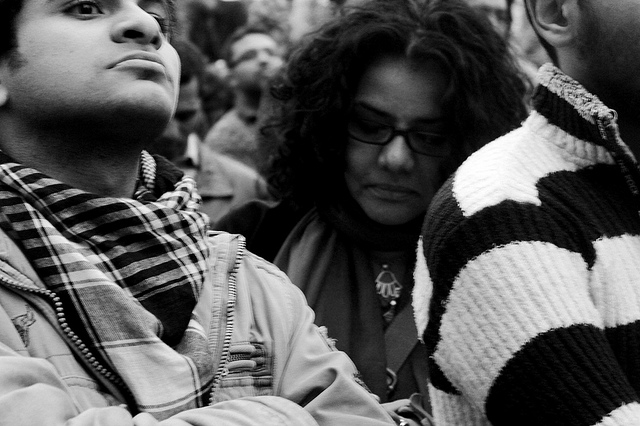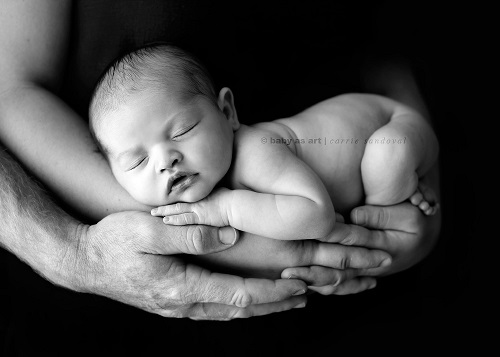Last week, The New York Times published a Mona Eltahawy article with a sexy headline: Sex Talk for Muslim Women. The article chronicled the author’s journey to sexual freedom: growing up in a conservative household, Ms. Eltahawy always knew that sex outside of marriage was not an option, but the older she grew, the more of this vow of abstinence began to feel like a burden. After years of struggling with the guilt and shame that accompanies many women who have sex outside of marriage, Eltahawy says she now enjoys her sexual liberation.
Mona’s story is not unfamiliar to me. I have heard countless stories of women – young and old – who find that their vow of abstinence has shifted from a spiritually motivated choice to a decision laden heavy with resentment. I fully understand and empathize with their sexual frustration.
As the American Muslim community is producing a burgeoning number of single men and women, we can’t ignore the issues that arise with this swelling demographic. What can we do to tend to this group’s reproductive and mental health needs? Have we created a safe, judgment-free space for them in our communities where they can share the struggles of being unmarried while navigating two contradictory worlds? The first being the hypersexualized culture that is impossible to avoid, bombarding impressionable young minds as early as toddler age. And the second a religious milieu that expects unmarried individuals, especially women, to remain chaste, impervious to the pressures around them and unaffected by their own natural desires. I would argue that we have failed to create a space that does not attach one’s self-worth to their marital status and ability to bear children for this growing group of individuals.
As the director of a non-profit that promotes sexual heath in faith communities, my work demands that I ask these tough, uncomfortable questions. In secular spaces, sex positivity and feminism promotes sexual freedom and tends to dismiss religious law that promotes abstinence as oppressive. In religious spaces, on the other hand, many unmarried women find themselves being denied their sexuality even as adults. They are told to remain patient, to pray to God, who will ultimately reward them for their discipline. And then we have people like Mona Eltahawy, who share their stories as Muslims with anger and resentment. They kick themselves for not casting aside their religious code of conduct sooner to enter the guilt-free culture of sexual gratification. Unfortunately, neither of these three points-of-view fully grasp the nuance that is particular to the Muslim woman’s experience.
Let’s start with the limitations of the sex positive culture. Secular sex positive and feminist spaces often shame Muslim women for trying to live out their religious beliefs and choosing to practice abstinence until marriage. AsNashwa Khan explains in her latest post, in Everyday Feminism
Notions of sex positive feminism are in need of repair if the presumption is always that being sexually active means being liberated, while abstention from sexual activity means being oppression. Not being sexually active – whether a decision based in religion or a sexual orientation, like asexuality – should be just as respected a form of bodily autonomy [as any other].
When a point-of-view fails to recognize abstinence as a form of sexual freedom, it is failing to consider the experiences of those who:
- Choose abstinence for the sake of their faith, or who return to abstinence after having been sexually active, either by choice or circumstance, for the sake of their faith;
- Use abstinence as an expression of religious freedom;
- View abstinence as an expression of self-love and preservation & womanhood/manhood for one partner;
- Converted to Islam and aspire to fulfill all elements of their new faith, including abstaining from sex until marriage;
- Abstain from sex due to asexual tendencies or
- Abstain from sex because the person is a survivor of trauma.
Unfortunately, Eltahawy did not acknowledge these nuances in her The New York Times piece. Ironically, Eltahawy makes the same mistake that secular sex positive cultures make: that in order to be sexually liberated, one must be sexually active. The thing is, as hard as the day-to-day reality of abstinence is, there are still Muslim women who choose abstinence because they believe it to be empowering and their spiritual obligation, and so setting aside their guilt and “getting over it” would never be an option.
On the other hand, the realities of how arduous practicing abstinence can be, particularly during a time when society is hypersexualized and the age of marriage is increasingly delayed, is not also addressed adequately in religious spaces . Religious discourse often offers Muslim women little space to openly ask questions and negotiate their sexual identities. And while I am certainly not arguing that Islamic law should be changed, I do believe it’s time to face these issues head on, to engage in nuanced discussions, and to reclaim sexual decision making – both for those who chose to engage as well as those who choose to abstain – as a tool of empowerment.
So how do we begin to make this shift from sexual decision making to be free of guilt and shame but rather empowerment and autonomy? One step may be to change the discourse around sexuality and virginity. In other words, critically examining even the language we use when speaking about sexuality to see whether it is empowering and positive is crucial for such a culture shift. For example, some in the sex education field have argued that phrases such as “she lost her virginity,” and “he took her virginity” are disempowering and reinforce gender roles, where the man is the aggressor who has something to gain while the female is passive. Additionally, it refers to one’s first sexual encounter as a negative one, where an individual “lost” something, rather than began a new stage in life. As such, it is suggested that young women and men adopt more positive language around sexuality, such as making one’s “sexual debut” when referring to the first time they have sex, arguing that it makes for more empowered decision-making.
While not all sex education techniques are exactly appropriate or culturally-sensitive to the Muslim community, the need to examine language raises an important point that may be worth exploring. Is making a radical change such as the one suggested above a step to empowering young women with respect to their sexuality – even if, or rather, especially if, they choose to abstain? Will it lend to healthier sexual attitudes before and during marriage? Will it take back the overwhelming power associated with virginity and make women feel content with their decisions regarding sexuality – particularly if they choose to abstain? This difference in language to most may seem subtle, unnecessary and just simply a matter of semantics, but may really make a difference to instilling positive attitudes toward sexual health decision making. Speaking about sexual activity in a positive and active voice gives a person control over their choices, and consequently feel better about making that choice (or not making it) in a way that is free of shame.
Finally, it’s important to see what other faith and cultural communities have done to address these issues. There are a number of religious communities that value abstinence until marriage. What have they done to change the discourse around abstinence?
We don’t have to reinvent the wheel. We just have to keep pushing our way through and making a space that fits for all of us – one that is inclusive, empowering, and truly free of shame for all involved.
Nadiah Mohajir is co-founder & executive director of HEART Women & Girls, a nationally recognized nonprofit that promotes sexual health and sexual violence awareness in faith communities.
Photo Credit: Randa Ali






Didnt read much that could be labelled tangible in this article. Please be more specific next time as I think that would help readers understand the main premise. Not attaching labels, creating a safe place of empowerment is important but so what?
Understanding something palpable is necessary for this discussion.
Mona Eltahawy’s article starts with a 32 years old British Muslim women who told her she was fedup with waiting to have sex and her fear to be hated by God if she has sex before mariage. The article expresses the lack of discussions about Muslim women sexuality their frustrations ,their experiences within and outside marriage.
Surely discussions on women sexuality would lead to hymen reconstruction surgery ,secret mariage, leaving Islam because of the guilt, shame ….questions such as “how much should I tell to my futur husband about my sexuality before” ?….
It is a good thing to talk about abstinence but are we going to talk about it with a 20 ,30 or 45 years old women who have never been sexually active as with a 15 years old girl?
Mona Eltahawy clearly writes she is not arguing about what religion says about sex .In my view she is just telling out loud stories that many do not want to hear and discuss because many Muslims do not know and/or still do not want to accept that women have sexual needs and desire.
Absolutely agree. Mona’s stories, as well as stories like hers, need to be told – abstinence is not for everyone. This article is simply challenging the notion of viewing abstinence as something that is oppressive, when it can be a tool of empowerment for others. Furthermore, there are also others who definitely find it difficult, but are still looking to it to be a positive sentiment in their lives. This article is simply to challenge folks to reclaim abstinence as an empowered and positive sexual health decision.
I have heard Mona Eltahawy speak about this, and not only does she speak with respect for the choice to abstain, but lets acknowledge that she IS speaking as a Muslim woman and so IS part of “the nuance that is particular to the Muslim woman’s experience.” The problem is nobody speaks about this particular ‘nuance’ within an islamic context because its considered as unislamic by many. So everyone lives like hypocrites unless they abstain. i wonder how many abstain because they think its the sacrifice they HAVE to make to be a good muslim? I highly recommend reading Kecia Ali’s book on Sexual Ethics in Islam – its difficult and hopeful – did you know that Imam Shafi describes marriage/Nikah as a ‘purchase of the vulva’? Sexual slaves (described as ‘the women your right hands possess in the quran) and ‘free’ women are spoken of in the same sentence in classical jurisprudence texts and to this day these are the texts being referred to – this needs to change, I mean we dont have slaves anymore do we? Perhaps we do. Read Mona’s book too – its fascinating and i respect and was thankful for her honesty
Absolutely agree. Mona’s stories, as well as stories like hers, need to be told – abstinence is not for everyone …its fascinating and i respect and was thankful for her honesty
Thank you for writing and posting this article. It’s an issue that my friends and I constantly struggle with and discuss among each other, but is considered shameful to discuss openly and something we are just supposed to deal with. Let’s continue to discuss issues that are relevant to women, especially Muslim women, in today’s world.
I absolutly like your site.
really appreciated
learning quran now a days is very easy.no need to go out to teacher,you can easily learn quran at home
Masha Allah informative and eye opening article i love to read it